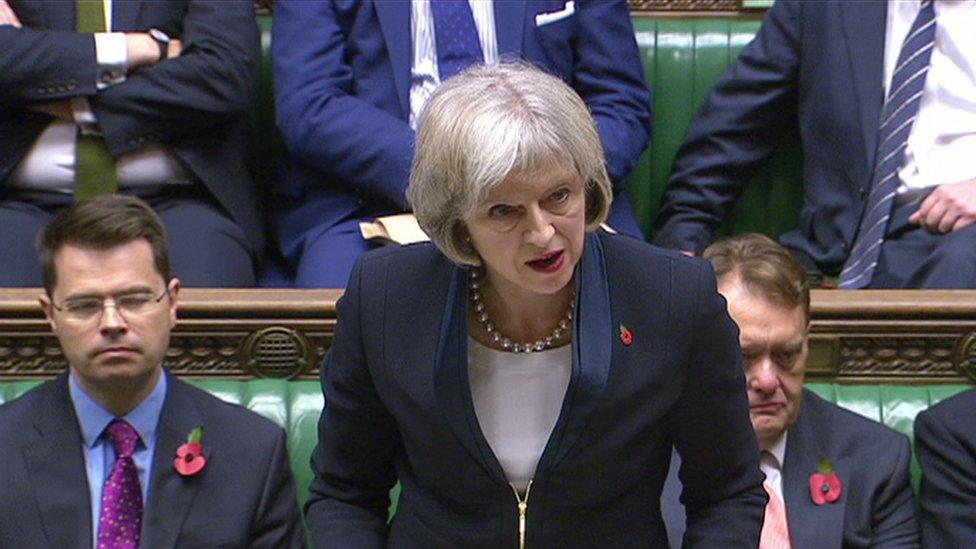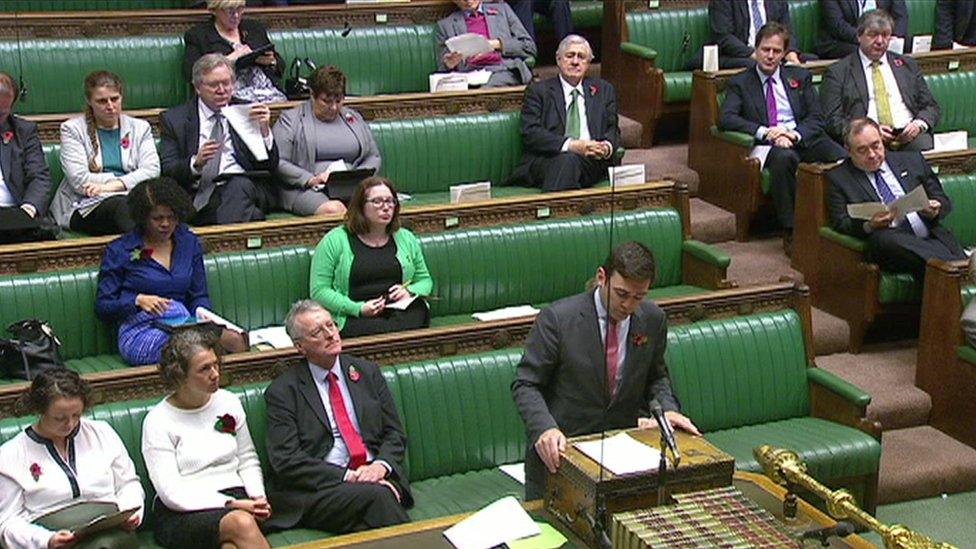Internet surveillance: The Commons reacts to Theresa May's proposals
- Published

Theresa May want surveillance powers updated for the digital age
Politicians on all sides of the House have been preparing for a fight over civil liberties and protection of personal privacy.
Most decided to hold their fire when confronted by a home secretary armed with a weighty and complex set of powers. But there are likely to be further skirmishes as parliament considers the details of her proposals.
Theresa May's central argument is that the powers of the police and intelligence agencies need to be updated for the digital age, when criminals and terrorists are finding new means of communication.
The most contentious issue is who should authorise the interception of communications.
Her plan for the home secretary to approve warrants but then to require the approval of a judge seems to have appeased many of her critics. But there are still big concerns over the demand for internet companies to keep a record of which websites we use, even though they won't retain more details of our internet use.
The shadow home secretary Andy Burnham set the tone of the debate when he urged MPs to send a unified message that the proposals were "neither a snoopers' charter nor a plan for mass surveillance".
He said Theresa May had broadly got the balance right but there would be fears in Muslim communities that the powers could be used disproportionately.
Some of the home secretary's most dangerous critics are on her own side. David Davis, a former shadow home secretary, said the bill was a step in the right direction.

Labour's Andy Burnham called for a united message from MPs
But he questioned who would appoint the judges who would sign the intercept warrants and raised concerns about the bulk retention of data.
One of Mrs May's former colleagues, the ex-Northern Ireland Secretary Owen Paterson, had very different concerns.
Mr Paterson, who signed warrants when he was in office, said he believed such decisions should be taken by elected politicians and feared involving a judge would mean delays and complications on urgent cases.
The former Liberal Democrat leader Nick Clegg helped to kill off a previous bill which he called the "snoopers' charter" when he was in coalition with the Tories.
He said today's proposals were "much improved", but warned: "I have a feeling under the bonnet it still retains some of the flaws of its predecessor."
This is a draft bill and now faces detailed consideration in the Lords as well as the Commons. The home secretary is braced for further challenges but will be hugely relieved to have got through this critical session in the House largely unscathed.
- Published4 November 2015
